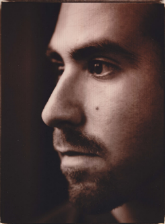Join a community of readers who are committed to Jewish stories
Sign up for JBC’s Nu Reads, a curated selection of Jewish books delivered straight to your door!
 I’m sitting on the back porch of my temporary lodgings in Atlanta, while two spiders go at it, the smaller invading the larger’s web. (Why? Who knows. Maybe he or she is lonely.) Larger lunges at smaller, until smaller retreats, and both settle down again to await the arrival of an unsuspecting fly. Watching them, I am reminded of Charlotte’s Web, which I read when I was boy, and how caught up I became in the struggles of Charlotte and Wilbur and how I never wanted the story to end. Unfortunately, it did, yet fortunately for me I found many other stories to get tangled up in—Encyclopedia Brown, The Westing Game, The Tales of Narnia, and The Bridge to Terabithia.
I’m sitting on the back porch of my temporary lodgings in Atlanta, while two spiders go at it, the smaller invading the larger’s web. (Why? Who knows. Maybe he or she is lonely.) Larger lunges at smaller, until smaller retreats, and both settle down again to await the arrival of an unsuspecting fly. Watching them, I am reminded of Charlotte’s Web, which I read when I was boy, and how caught up I became in the struggles of Charlotte and Wilbur and how I never wanted the story to end. Unfortunately, it did, yet fortunately for me I found many other stories to get tangled up in—Encyclopedia Brown, The Westing Game, The Tales of Narnia, and The Bridge to Terabithia.
Back then, I read only for pleasure and escape and erroneously imagined these books I so loved to be handed down through a series of magic tricks to end up in my favorite bookstore. I had no idea they were written by real people, who sat at real desks and typed them out on real typewriters, arduous page after arduous page. These books, these authors, changed the way I saw the world, but more than this they changed the way I interacted with it. I learned about sleuthing, betrayal, love, and death by falling headfirst into these created universes, which matched the reality of my own only insofar as they resembled the familiar — houses, trees, the sun and moon, stars, streets, etc. Other than this, they were as fantastical as they were absorbing; I couldn’t wait to flip the page to find out what happened next.
While working on my own novel, I had a similar experience, yet now I was in complete control (or so I thought) of what happened next. The process of writing and publishing Antonia Lively Breaks The Silence took ten years and through it, I learned many valuable lessons, the most important of which is this: we writers have little say in the fate of our characters, who ultimately dictate to us how they want the story to be told and what will happen to them. So it was that one writer after another began to appear in the pages of Antonia Lively Breaks The Silence and I had nothing to say about it. No, really. They turned up and took over and suddenly the novel became more than a novel about a fraught triangulation of widow, critic, and ingénue. It became a novel that asked where stories come from and who owns them, how we write novels and why we do. Like a fly, I was trapped in my novel’s web and the less I struggled, the more I discovered about the characters and myself and the more I discovered, the more the impossible began to occur — the characters told me what was going to happen and held me to this, refusing to let me go until they were satisfied I’d told their stories as honestly and as well as I could.
Learn more about David Samuel Levinson here.
DAVID SAMUEL LEVINSON is the author of the novel, Antonia Lively Breaks the Silence and the story collection, Most of Us Are Here Against Our Will. He has been nominated for the Pushcart Prize and has received fellowships from Yaddo, the Jentel Foundation, Ledig House, the Santa Fe Arts Institute, the Sewanee Writers’ Conference and the Marguerite and Lamar Smith Fellowship for Writers. He has formerly served as the Emerging Writer Lecturer at Gettysburg College and as the Fellow in Fiction at Emory University.